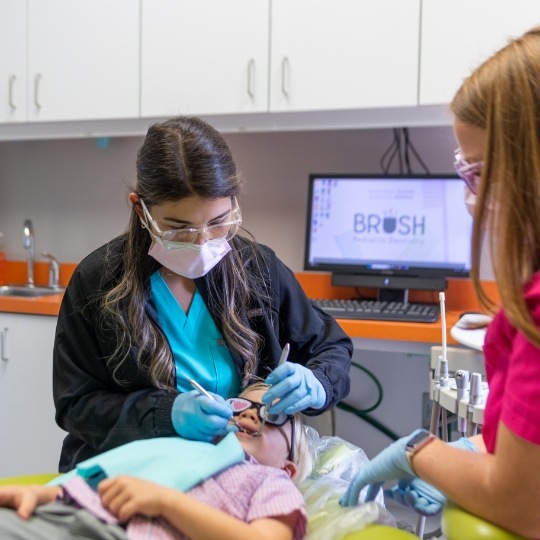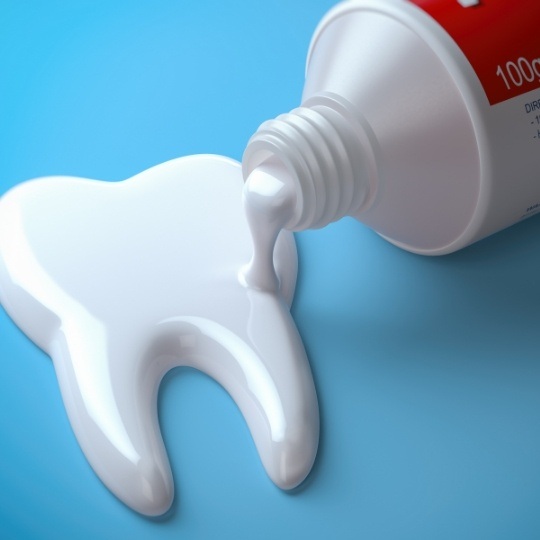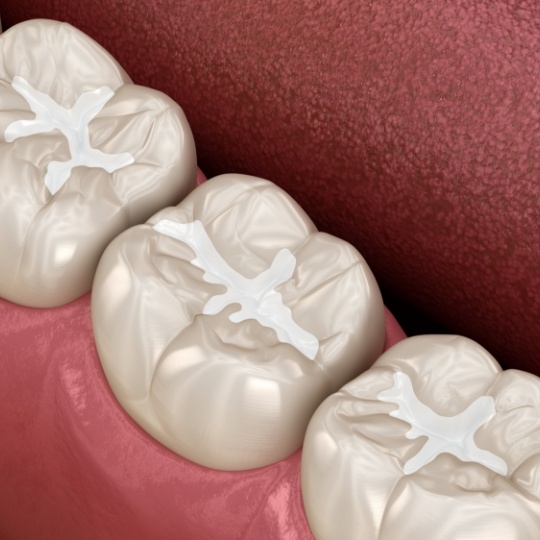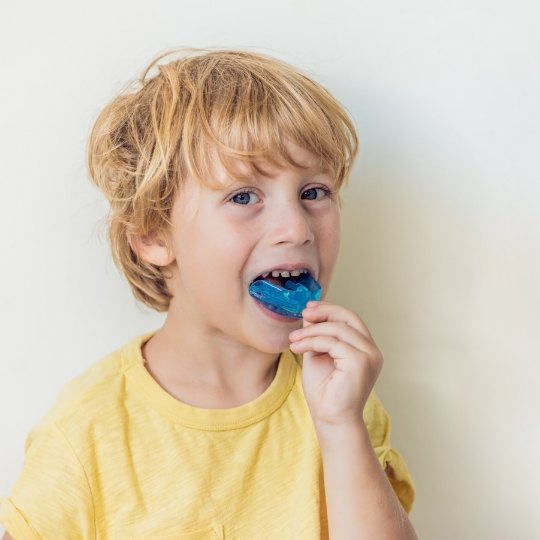Keeping your kid’s teeth strong and healthy is as important to us as it is to you. With that in mind, Brush Pediatric Dentistry promotes prevention—both at home and in our office—as a priority! We do our best to prevent cavities and strengthen young teeth to set the stage for lifelong healthy smiles. Our specialized dental team will teach your children how to effectively brush and floss, and when necessary, recommend preventive pediatric dental treatments in Downers Grove and Hinsdale, such as fluoride and dental sealants.







